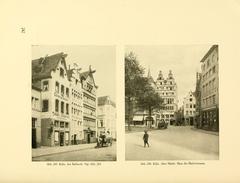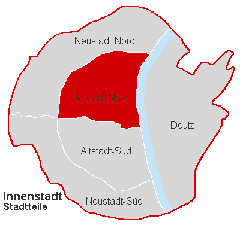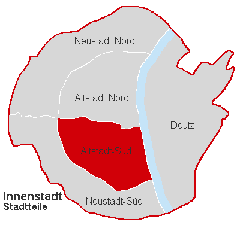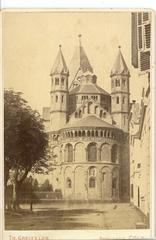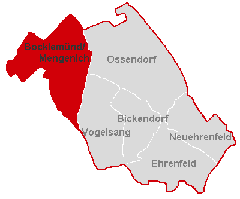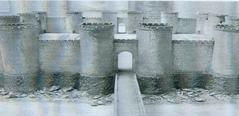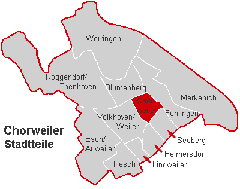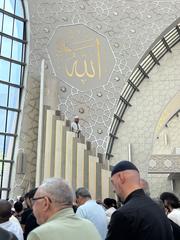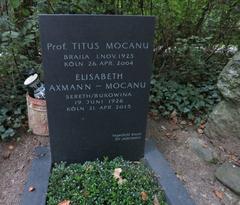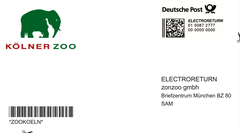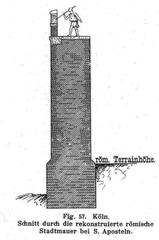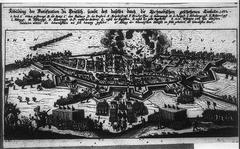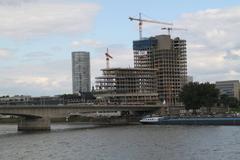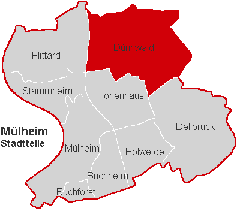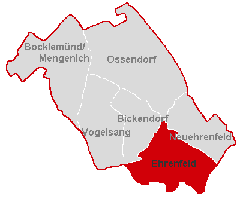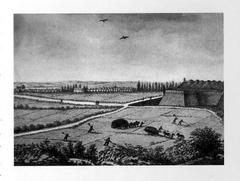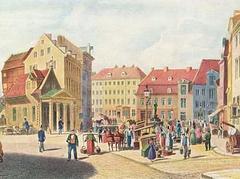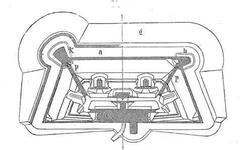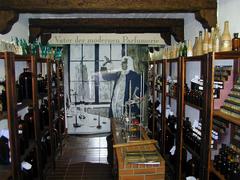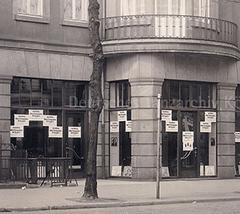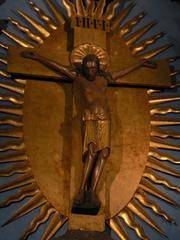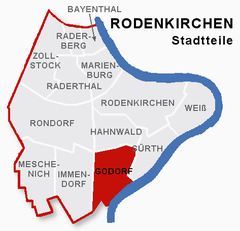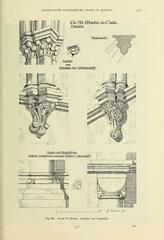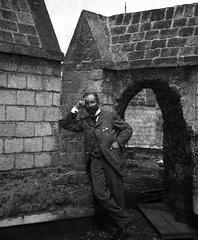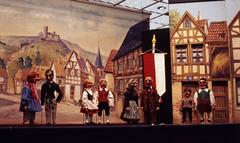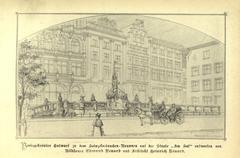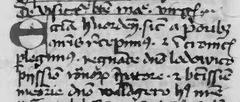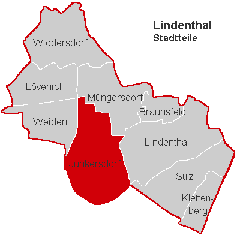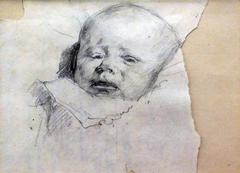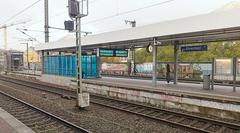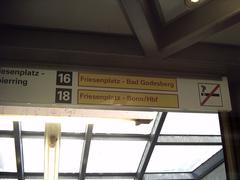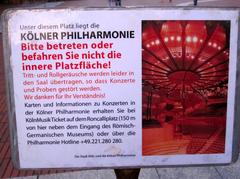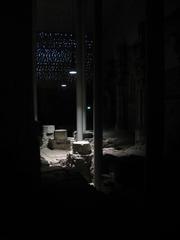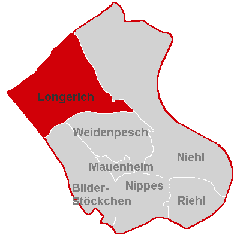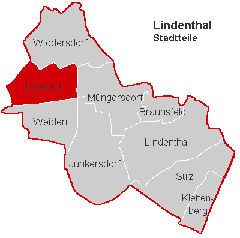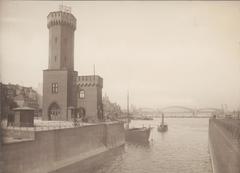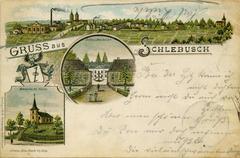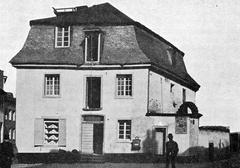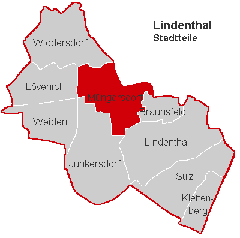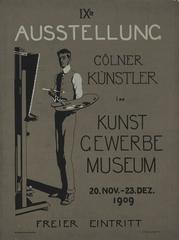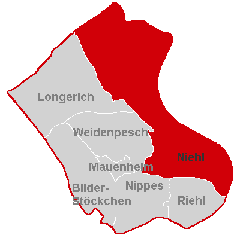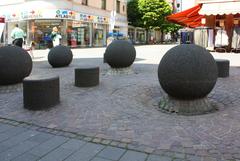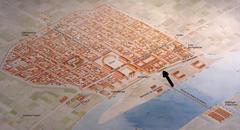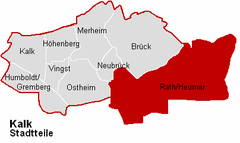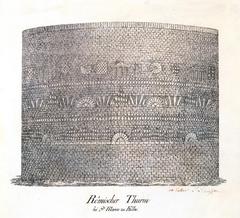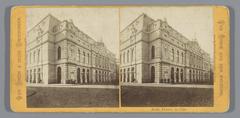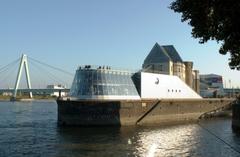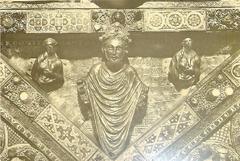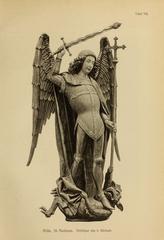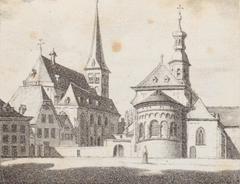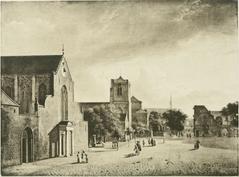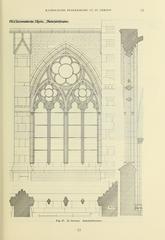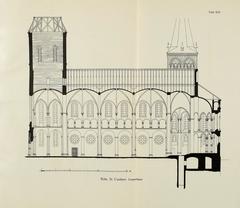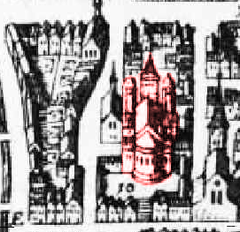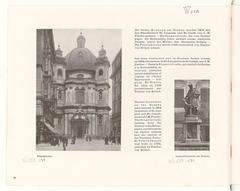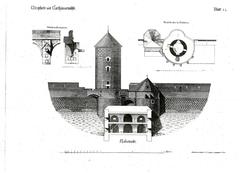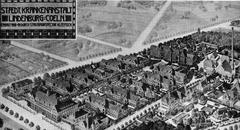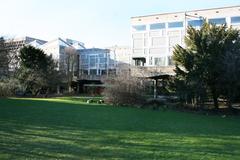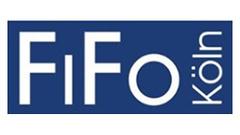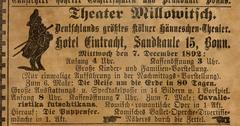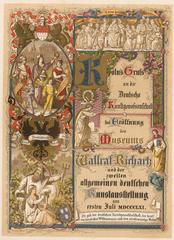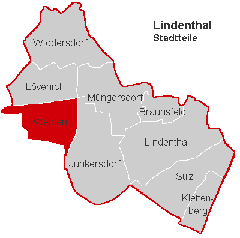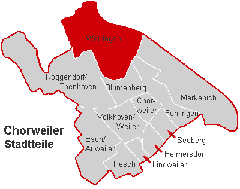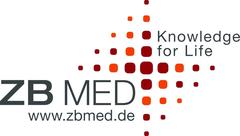
Memorial To Gay And Lesbian Victims Of National Socialism
Visiting the Memorial to Gay and Lesbian Victims of National Socialism in Cologne, Germany: Tickets, Hours, and Guide
Date: 04/07/2025
Introduction
The Memorial to Gay and Lesbian Victims of National Socialism in Cologne stands as a powerful tribute and a vital reminder of the LGBTQ+ individuals who endured persecution under the Nazi regime. Established in 1995, it is among Germany’s earliest public monuments dedicated specifically to the memory of gay and lesbian victims of National Socialism. The memorial serves not only as a place of remembrance but also as an educational resource, ensuring that the suffering and resilience of LGBTQ+ communities are acknowledged alongside the broader narrative of Holocaust commemoration (Wikipedia; USHMM).
Located near Cologne’s city center, adjacent to iconic landmarks like Cologne Cathedral and the Hohenzollern Bridge, the memorial invites reflection from locals and visitors alike. Its symbolic design, featuring the pink triangle once used to stigmatize gay men, now stands as a reclaimed emblem of pride and resistance. This guide provides essential information for visiting the memorial, including hours, tickets, accessibility, nearby attractions, and ways to engage meaningfully with this historic site.
Table of Contents
- Introduction
- Historical Background and Significance
- Memorial Description and Symbolism
- Visitor Information
- Nearby Attractions and Amenities
- Tips for Visitors
- Frequently Asked Questions (FAQ)
- Conclusion
- References
Historical Background and Significance
Persecution Under National Socialism
Between 1933 and 1945, the Nazi regime’s enforcement of Paragraph 175 of the German Criminal Code led to the arrest, conviction, and deportation of tens of thousands of gay men. Roughly 50,000 men were convicted, with thousands sent to concentration camps, where they endured forced labor, violence, and in many cases, death. The pink triangle was imposed as a badge of shame, a symbol later reclaimed by the LGBTQ+ community as one of remembrance and resistance (USHMM; History Channel).
Lesbian women, while not targeted under Paragraph 175, were also persecuted through social ostracism, accusations of “asocial” behavior, and imprisonment for defying gender norms. Many suffered under policies aimed at enforcing conformity and punishing non-heteronormative identities (Wikipedia).
The Memorial’s Establishment
The memorial’s creation in 1995 was the result of sustained advocacy by local LGBTQ+ organizations and allies. Its presence in Cologne’s cityscape ensures that the memory of these victims is preserved and that the lessons of this dark era remain relevant, fostering dialogue on tolerance and human rights (Centrum Schwule Geschichte; NS-DOK).
Memorial Description and Symbolism
Location and Design
Situated in Rheinauhafen, 50678 Köln, the memorial is a short walk from the Cologne Cathedral and the scenic Rhine promenade. Its centerpiece is a pink granite slab, referencing the pink triangle badge. The inscription reads:
“Totgeschlagen – Totgeschwiegen”
(“Beaten to death – Silenced to death”)
This phrase encapsulates both the violence and historical erasure experienced by LGBTQ+ victims. The public location and accessible design invite ongoing reflection and remembrance.
Visitor Information
Hours and Accessibility
- Opening Hours: The memorial is an outdoor monument, accessible 24 hours a day, year-round.
- Accessibility: The site is fully wheelchair accessible with paved pathways and clear signage, ensuring all visitors can experience the memorial comfortably.
Tickets and Admission
- Admission: Free. No tickets are required.
Getting There
- By Public Transport: The nearest major stations are Köln Hauptbahnhof (Cologne Central Station) and Heumarkt. From the Cologne Cathedral, the memorial is a brief walk along the Rhine.
- By Foot/Bike: Its central location makes it easy to incorporate a visit into a walking or cycling tour of Cologne’s historic core.
Guided Tours and Educational Programs
- Tours: Local organizations such as Centrum Schwule Geschichte offer guided history walks that include the memorial. These tours provide context and personal stories, enriching the visitor experience (Centrum Schwule Geschichte).
- Educational Resources: Information plaques are primarily in German, but English-language resources are available online and through local guides. The NS Documentation Center offers additional exhibitions on the persecution of minorities (NS-DOK).
Special Events and Commemorations
- Christopher Street Day (CSD): The memorial is a focal point during Cologne’s Pride celebrations, with speeches, moments of silence, and wreath-laying ceremonies (Travel Gay).
- Holocaust Remembrance Day (January 27): Commemorative events are held annually, and local schools and organizations often arrange group visits.
Nearby Attractions and Amenities
- Cologne Cathedral: A UNESCO World Heritage Site and one of the most visited landmarks in Germany.
- Museum Ludwig: Renowned for its modern art collections.
- Roman-Germanic Museum: Offers insight into Cologne’s ancient history.
- Rheinauhafen District: Features riverside cafes, restaurants, and impressive city views.
- LGBTQ+ Scene: Cologne is known for its vibrant queer community, with numerous bars, clubs, and cultural venues in the city center (Travel Gay).
Tips for Visitors
- Plan Ahead: For guided tours or commemorative events, check schedules in advance, especially during Pride season.
- Reflect and Engage: Take time to read the inscriptions and consider the memorial’s historical context.
- Respect the Site: Maintain a respectful demeanor, especially during remembrance events.
- Support Local Initiatives: Consider visiting the Centrum Schwule Geschichte or supporting organizations that preserve LGBTQ+ history.
Frequently Asked Questions (FAQ)
Q: What are the visiting hours for the memorial?
A: The memorial is accessible 24/7 as it is an outdoor site.
Q: Is there an admission fee?
A: No. Visiting the memorial is free.
Q: Is the site wheelchair accessible?
A: Yes. The memorial features paved paths and accessible facilities.
Q: Are guided tours available?
A: Yes. Guided tours are offered by local organizations and can be arranged in advance.
Q: When is the best time to visit?
A: The memorial can be visited year-round. Special events take place during Cologne Pride and on Holocaust Remembrance Day.
Q: Can I take photographs at the memorial?
A: Yes, photography is permitted. Please be mindful and respectful of the site’s commemorative nature.
Q: Is the memorial suitable for children?
A: Yes, but adult guidance is advised due to the sensitive subject matter.
Visuals and Media Suggestions
- Images: Use high-resolution photos of the pink granite slab and site, with alt tags such as “Memorial to Gay and Lesbian Victims of National Socialism in Cologne.”
- Map: Embed an interactive map showing the memorial’s location and public transport routes.
- Virtual Tour: If available, provide a link to a virtual tour from the official website.
Internal and External Links
- Cologne historical sites
- NS Documentation Centre of the City of Cologne
- Official Cologne Tourism Website
- US Holocaust Memorial Museum
- History Channel on Pink Triangle
Conclusion
The Memorial to Gay and Lesbian Victims of National Socialism in Cologne is a site of profound remembrance, education, and reflection. It honors those who suffered under the Nazi regime and serves as a beacon for tolerance and human rights. Accessible year-round and free of charge, the memorial encourages visitors to engage deeply with its history and symbolism. Guided tours, educational programs, and commemorative events enhance the experience, while its proximity to other major Cologne landmarks invites a broader exploration of the city’s heritage.
By visiting the memorial, you not only pay tribute to the resilience of LGBTQ+ communities but also contribute to the ongoing dialogue about rights, inclusion, and the enduring importance of remembrance. For the latest information on tours and events, consult official Cologne tourism resources and partner organizations.
References
- Persecution of homosexuals in Nazi Germany, Wikipedia, 2025
- Persecution of Homosexuals in the Third Reich, US Holocaust Memorial Museum, 2025
- Centrum Schwule Geschichte, Cologne, 2025
- NS Documentation Center of the City of Cologne, 2025
- The Pink Triangle, History Channel, 2025




